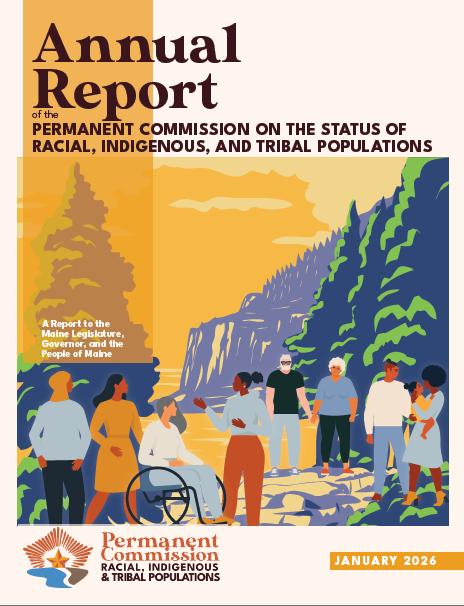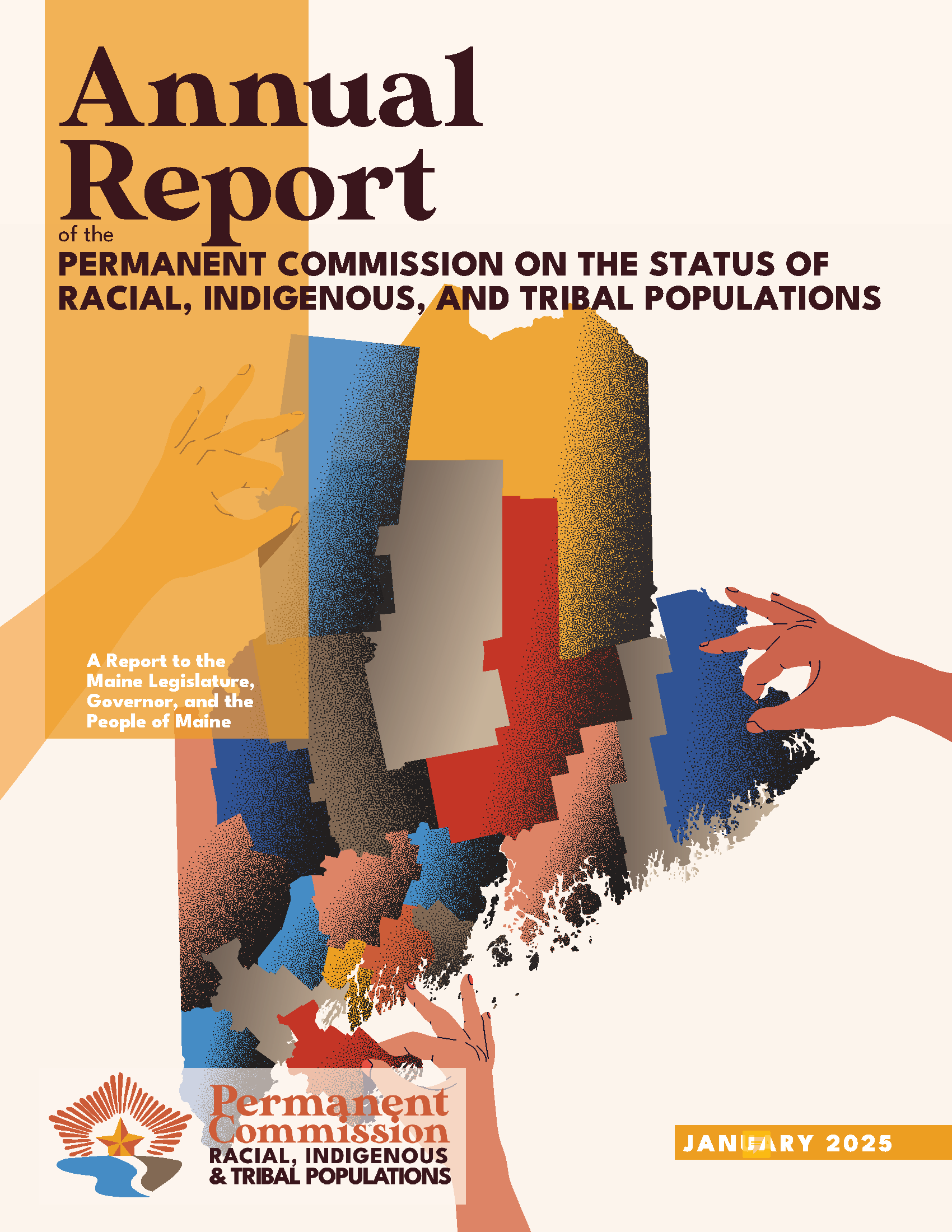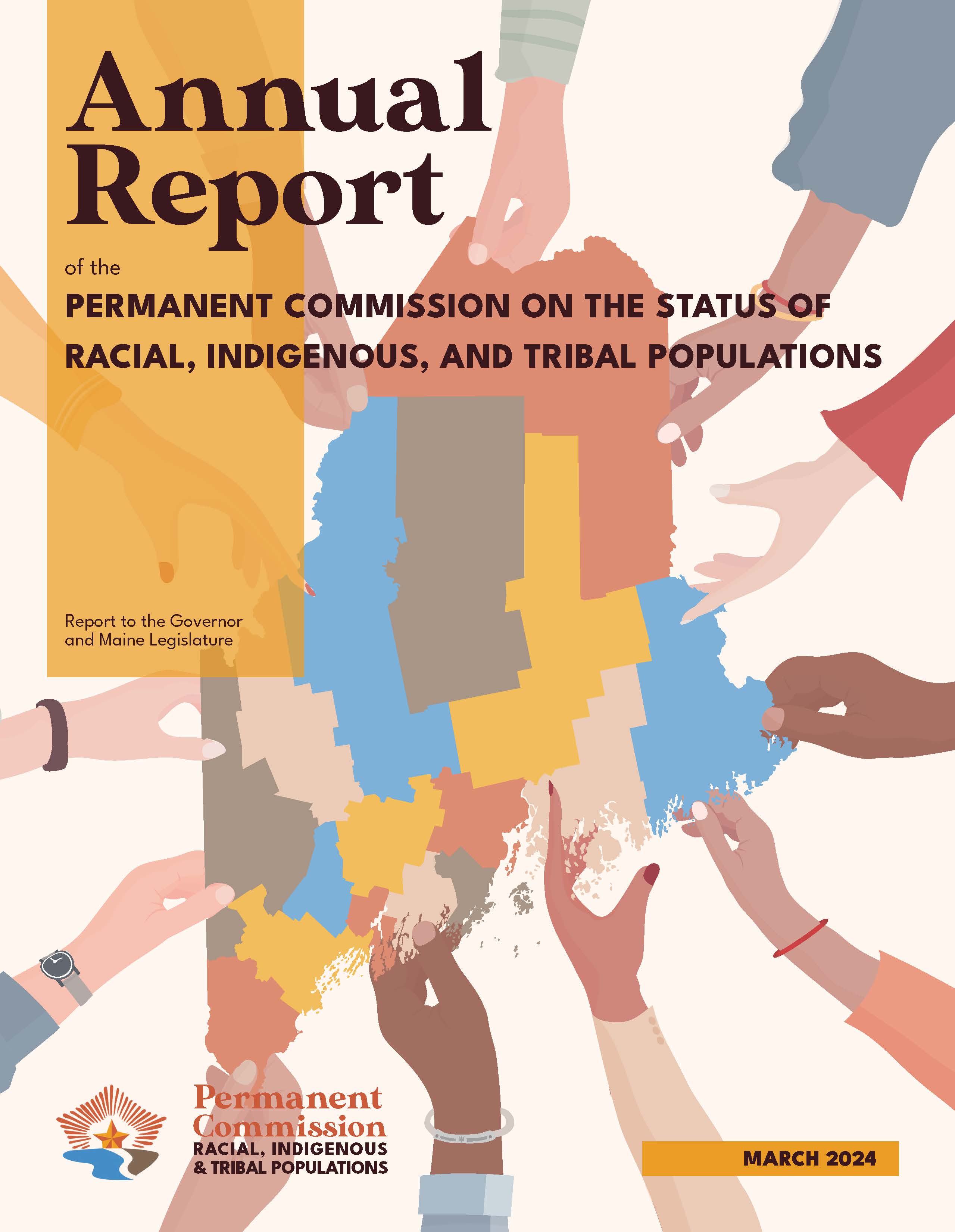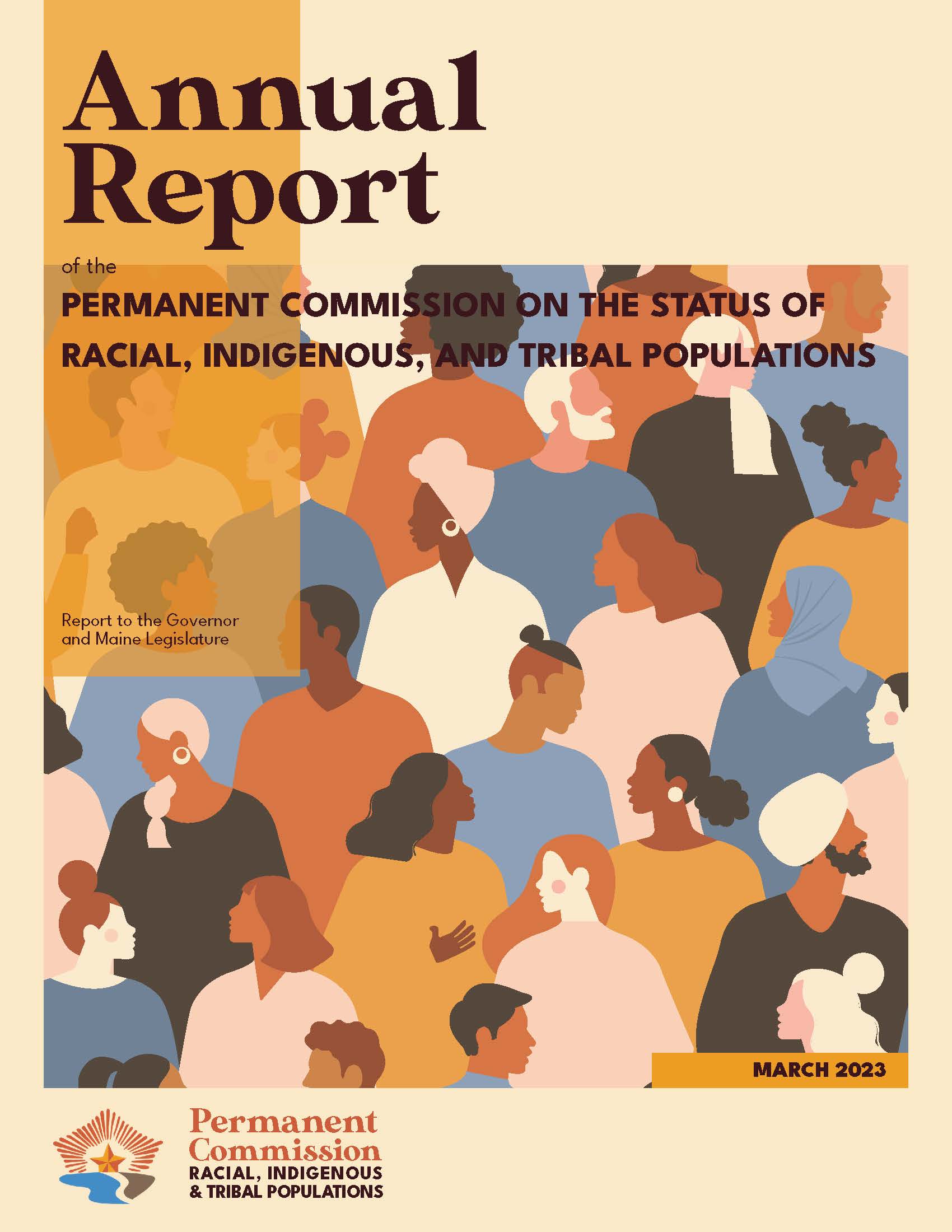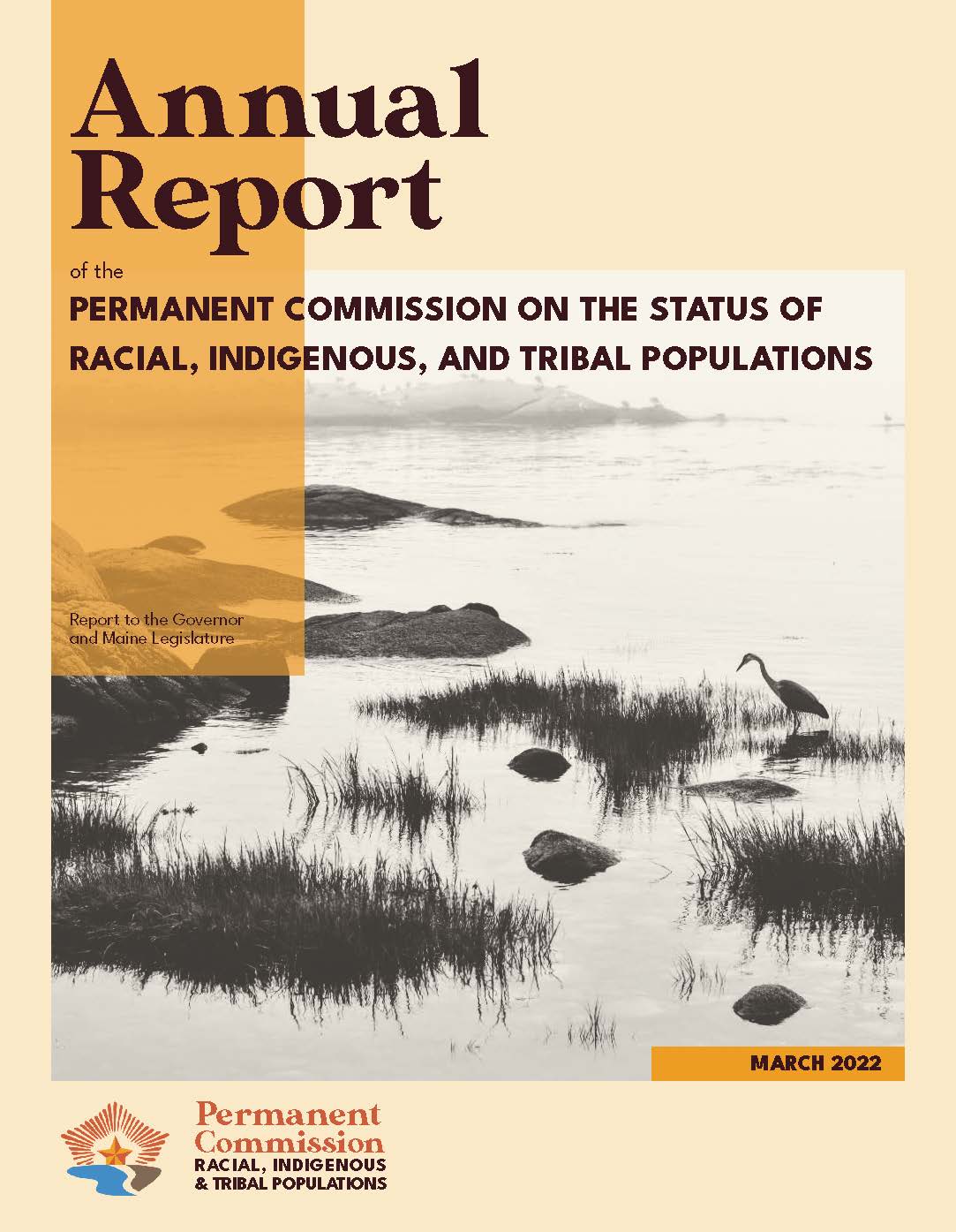A Legacy of Disparity, a Vision for Justice
Work with us! View current job openings
- Annual reports
Charting Our Progress
Our annual reports tell the story of our ongoing work toward racial justice. They offer a transparent look at our initiatives, challenges, and the progress we're making together to create a Maine that truly works for everyone.
- Guiding Principles
Shortly after it was established, the Permanent Commission identified seven guiding principles for addressing structural racism through public policy. These guiding principles remain central to the work:
Building awareness takes resources. Existing quantitative data show significant disparities in socioeconomic and health outcomes based on race, ethnicity, tribal citizenship, and immigration status. The Permanent Commission also recognizes the importance of qualitative data - the lived experience of people most harmed by systematic racism. This requires open dialogue, active listening, and respecting lived experience as valuable and valid data.
Awareness alone is not enough. Building awareness of disparities is a first and important step. Action needs to be taken to address root causes alongside a long-term commitment to listening and learning.
Financial and human resources must be allocated. To truly address the deep-rooted impacts of racism, we must demonstrate our commitment to change through the commitment of resources.
Policies that are ‘race-neutral’ will ultimately maintain existing disparities. The Permanent Commission advocates for the explicit consideration of race in the analysis of a policy’s impact. Only a fully-informed approach can build a foundation for fairer outcomes.
An adequate response requires a structural analysis. Specific bills and policies may help provide relief in the short-term, but it is necessary to take a systemic view to understand root causes.
Impacted communities should lead developing solutions. The Permanent Commission strongly believes that the most effective solutions will come from the communities most impacted.
Policies that affect tribal nations must be enacted in a government-to-government relationship that honors and respects sovereignty. Policies that impact tribal nations should be crafted and implemented in collaboration with tribal governments and their representatives.
- Commissioners
The Permanent Commission is made up of dedicated individuals from diverse backgrounds, united by a shared passion for justice. Get to know the Commissioners and staff who are working to build a more just Maine.
Commissioner Seat Appointing Authority Co-Chair Maulian Bryant Penobscot Penobscot Nation Co-Chair Amanda Comeau Housing & Homelessness Speaker of the House Co-Chair Bruce King Historically Disadvantaged Population Speaker of the House Amy Winston Community Development Financial Institution Speaker of the House Senator Rachel Talbot Ross Racial Justice President of the Senate Karin Leuthy Economic Policy President of the Senate Dina Malual Public Benefit Policy President of the Senate Sonja Thomas Higher Education President of the Senate Jason Shedlock Labor President of the Senate Rev. Kenneth Lewis Faith Governor Reginald Parson Youth Governor Richard Silliboy Mi'kmaq Mi'kmaq Nation Juana Rodriguez-Vazquez Migrant Rights Permanent Commission Theo Greene LGBTQ+ Permanent Commission Staff
Name Position Ariel Ricci Executive Director Leeann Sullivan Research Specialist Morgan Pottle Urquhart Communications Coordinator Aaron Hooks Wayman Operations Director Billale Fulli Community Engagement Specialist Sam Zuckerman Policy Coordinator


